Community Violence Intervention
Rapid Employment and Development Initiative (READI) Chicago
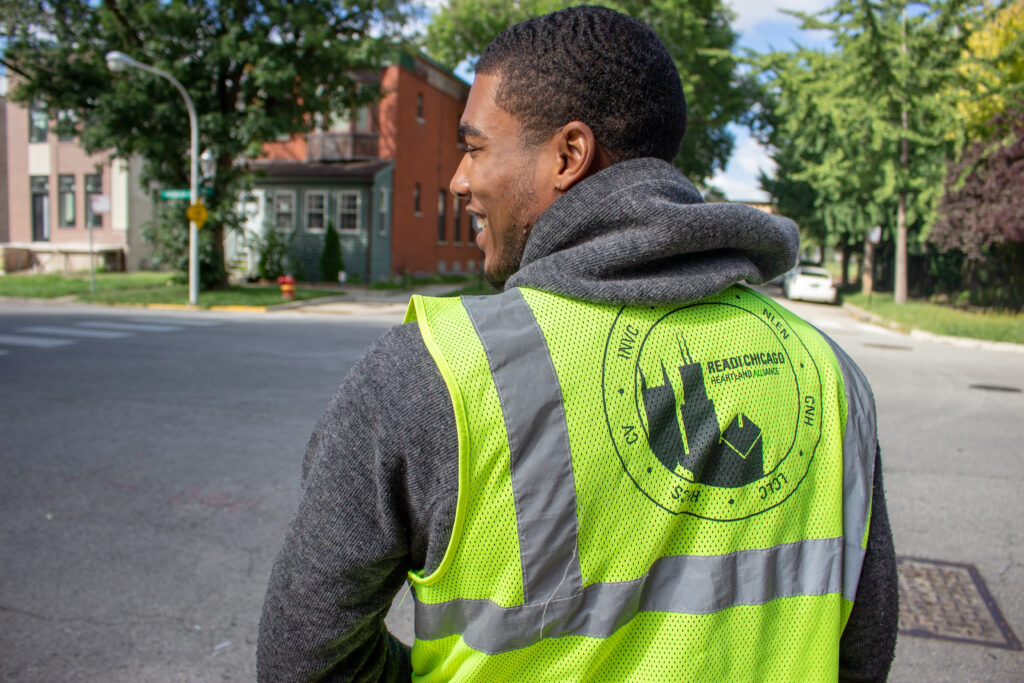
Heartland Alliance implemented READI Chicago, a gun violence reduction initiative that provides almost two years of intensive programming to men at the highest risk of shooting or being shot.
Challenge
Most of the victims of surging gun violence—and those who bear the greatest burden of aggressive policing and lengthy prison sentences—are young adult men of color, many of whom have criminal records. But most violence prevention and social safety net programs do not prioritize this population for services.
Opportunity
Any long-term solution to gun violence will require effectively supporting the adult men at the highest risk of shooting or being shot. READI Chicago, a community-research partnership implemented by Heartland Alliance, is designed to do this. READI prioritizes those most at risk of gun violence involvement, providing them with an 18-month subsidized, supported job and cognitive-behavioral programming to learn skills that can help them avoid violence. Researchers at the Crime Lab, Inclusive Economy Lab, University of Michigan, and Cornell University are conducting a randomized controlled trial to determine READI’s impacts on participants’ involvement in serious violence.
Solution
As of June 2023, it is the largest and most rigorous evaluation of a community-based violence intervention program in the United States. The study shows that it is possible to find and engage men at extremely high risk of gun violence and that READI’s services, while not lowering all forms of violence, appear to reduce involvement in the most costly ones: shootings and homicides.
Project overview
In Chicago, as elsewhere in the country, young adult Black men bear the disproportionate burden of gun violence victimization alongside the burdens of aggressive policing and lengthy prison sentences. However, this population is often not prioritized for social service supports. Most social services are primarily designed for women, families, and the elderly or disabled; few are designed to help non-disabled, working-age men disconnected from the labor market, even though they are at the highest risk of gun violence. We need solutions that reduce surging gun violence without exacerbating the harms of the criminal legal system. This effort includes finding ways to effectively support the adult men at the highest risk of shooting or being shot.
Heartland Alliance implemented READI Chicago, a gun violence intervention that identifies men in five of Chicago’s highest-violence neighborhoods who are – even compared to their neighbors – at the highest risk of gun violence involvement and engages them through relentless street outreach efforts. READI then offers these men two primary sources of support: an 18-month subsidized, supported job and cognitive-behavioral programming.
Researchers from the University of Chicago Crime Lab, the University of Chicago Inclusive Economy Lab, the University of Michigan, and Cornell University are conducting a randomized controlled trial to determine READI’s impact on participants’ involvement in serious violence. As of June 2023, this study is one of the largest and most rigorous studies of a community violence intervention program in the United States.
The study shows that READI can find and engage men at extremely high risk of gun violence. READI’s combination of services, while not lowering all forms of violence, appears to reduce involvement in shootings and homicides, the most severe and socially costly forms of violence.
To read more, the published article is available here, and an open-access version of the same article is posted here.
Years Active
2017 – present
Project Leads
Monica Bhatt
Senior Research Director

Chris Blattman
Ramalee E. Pearson Professor of Global Conflict Studies, University of Chicago Harris School of Public Policy

Marianne Bertrand
Chris P. Dialynas Distinguished Service Professor of Economics, University of Chicago Booth School of Business

Max Kapustin
Assistant Professor, Cornell University
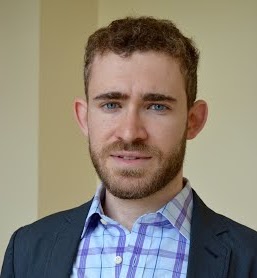
Sara Heller
Assistant Professor of Economics, University of Michigan

Related News
The inequality of safety: All big cities have a violence problem. Chicago’s is different.
The Crime Lab’s analysis reveals a stark contrast in homicide rates across different parts of Chicago, with significant increases in areas like Austin and Garfield Park, and a citywide arrest rate decline. Additionally, Senior Research Director Monica Bhatt highlights that participation in programs like READI Chicago led to significantly fewer arrests for shootings and homicides.

Probable Causation: Sara Heller & Max Kapustin discuss the Crime Lab’s work with READI and BAM
Dr. Sara Heller, Assistant Professor of Economics at the University of Michigan, and Max Kapustin, Assistant Professor of Economics and Public Policy at Cornell University, discuss their work and strategies for reducing gun violence.
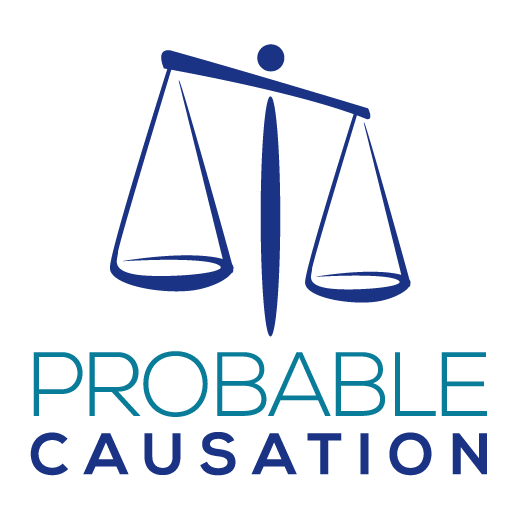
The Crime Lab’s evaluation of READI Chicago is showcased by the Chicago Sun-Times
The Crime Lab’s evaluation of READI Chicago’s effectiveness is showcased. The program focuses on crime prevention by offering education, support, and cognitive behavior therapy to high-risk men in the South and West sides of the city. The study found that the READI program has successfully kept these men from being arrested, demonstrating that proactive crime prevention strategies can be more effective than reactive punishment after committing a crime.

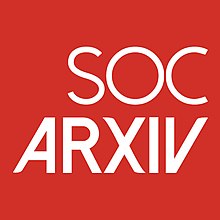
Predicting and Preventing Gun Violence: An Experimental Evaluation of READI Chicago – Final Paper
Learn more about the technical details of the READI study.
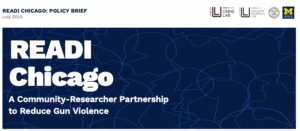
READI Policy Brief
Read more about our preliminary findings.
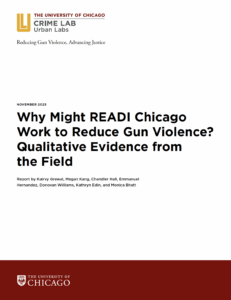
Why Might READI Chicago Work to Reduce Gun Violence? Qualitative Evidence from the Field
Building on a body of evidence showing that behavioral science-informed programs can reduce violence among youth and adults, this report highlights findings from a qualitative analysis to understand what mechanisms and components of programs–like READI Chicago–influence outcomes.
